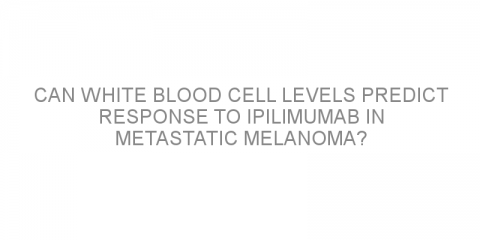In a nutshell This study examined the safety and effectiveness of radium-223, alone or in combination with other therapies, in treating metastatic castration-resistant prostate cancer (mCRPC). Researchers concluded that radium-223 was well tolerated and can be safely combined with additional therapies. Combined therapies were associated with improved...
Read MoreCurrent disease status-First occurrence of the cancer Posts on Medivizor
Are older prostate cancer patients (aged 75 years or more) candidates for surgery?
In a nutshell This study examined prostate surgery as a treatment option for older prostate cancer patients compared to younger patients. The authors concluded that prostate cancer patients aged 75 years or more can be suitable candidates for surgery. Some background Radical treatment options for prostate cancer, such as surgery, are often not...
Read MoreHow to Best Communicate Prostate Cancer Treatment Side Effects to Your Healthcare Team
How do I manage my side effects for better quality of life? Patient Power founder and host, Andrew Schorr, facilitates a dialogue between advanced prostate cancer experts, Dr. William Catalona, Dr. Russell Szmulewitz of University of Chicago Medical Center, and Judith Paice, PhD, RN to discuss managing and communicating treatment side effects. ...
Read MoreHow likely are women with hormone receptor positive breast cancer to benefit from additional exemestane or tamoxifen?
In a nutshell This study looked at the benefit of additional hormone therapy in premenopausal women with hormone receptor-positive HER2 negative (HR+ HER2-) early breast cancer. They found that patients at higher risk of cancer returning showed greatest benefit from exemestane (Aromasin) plus ovarian function suppression (OFS). Some background HR+...
Read MoreCan white blood cell levels predict response to ipilimumab in metastatic melanoma?
In a nutshell This study investigated whether the neutrophil count (NC; a type of white blood cell) and neutrophil-to-lymphocyte (another type of white blood cell) ratio (NLR) can predict prognosis in metastatic (spread to other parts of the body) melanoma patients treated with ipilimumab (Yervoy). Researchers suggested that the NC and NLR are...
Read MoreExamining the benefits of combining hormone therapy and radiation therapy
In a nutshell This study examined the evidence for combining androgen deprivation therapy (ADT) with radiation therapy for the treatment of high-risk localized prostate cancer. Authors concluded that the combined therapy approach was associated with a survival advantage for intermediate- and high-risk patients. Some background ADT is a type...
Read MoreAdding bevacizumab to letrozole treatment in hormone receptor-positive metastatic breast cancer – A good idea?
In a nutshell This study looked at the effect of adding bevacizumab (Avastin) to letrozole (Femara) treatment in patients with hormone receptor-positive (HR+) metastatic (spread to other areas) breast cancer. They found that bevacizumab treatment prolonged the amount of time before patients experienced worsening of their...
Read MoreHyopfractioned or standard external beam radiation therapy – which is better?
In a nutshell This study compared external beam radiation therapy (EBRT) and hypofractioned EBRT (H-EBRT) for low-risk localized prostate cancer. Researchers reported no differences in disease progression or survival. However, an increase in side effects was observed with H-EBRT. Some background Radiation therapy is a common treatment for...
Read MoreSurgery has higher curative rates than endoscopic tumor removal in early colorectal cancers
In a nutshell This study investigated the efficiency of endoscopic methods for tumor removal in early colorectal cancers when compared to surgery. Researchers reported that surgery is associated with higher curative rates when compared to endoscopic tumor removal. Some background Surgical removal of the tumor is the standard treatment for...
Read MoreLooking for patients with inflammatory breast cancer to test eribulin followed by chemotherapy
In a nutshell The main objective of this trial is to determine patient response to eribulin (Halaven) followed by doxorubicin (Adriamycin) and cyclophosphamide (Cytoxan) treatment. The main outcome to be measured is number of patients who experience a complete response to treatment (disappearance of signs of cancer). This trial is being conducted...
Read MoreManagement of prostate cancer in older men – an overview
In a nutshell This study evaluated recommendations for the management of prostate cancer in older men. Authors concluded that older men should be managed according to their individual health status and cancer risk classification, rather than by age. Some background The ageing of the population is expected to increase the number of older men living...
Read MoreOptimal waiting time to surgery after radiation therapy in rectal cancer
In a nutshell This study investigated the optimal waiting time between radiation therapy and surgery in rectal cancer patients. Researchers suggested that a prolonged waiting time is associated with tumor shrinkage. Some background Surgery is the only curative treatment for rectal cancer. Chemotherapy and radiation therapy is the recommended...
Read More










